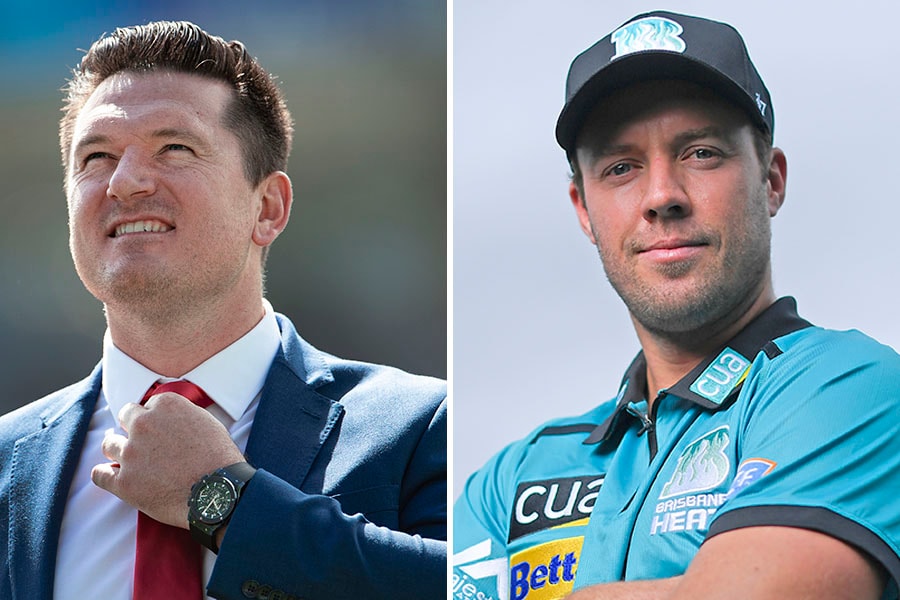
IPL built a talent pipeline for Indian cricket, we hope SA20 does the same for South Africa: Graeme Smith & AB de Villiers
Smith and de Villiers, the commissioner and brand ambassador, respectively, of the T20 franchise league in South Africa on turning profitable in its first season, the lessons learnt from the IPL and why they could get third time lucky
 (left)Former South African skipper and SA20 Commissioner Graeme Smith (left) and brand ambassador AB de Villiers
Image: Getty Images
(left)Former South African skipper and SA20 Commissioner Graeme Smith (left) and brand ambassador AB de Villiers
Image: Getty Images
In its very first year, SA20, the domestic franchise league in South Africa, turned a profit and added a substantial stimulus to the local communities. To quote the organisers, it has contributed 4.1 billion rands to South Africa's GDP and 958 million rands to its household income. It has also narrowed the losses for Cricket South Africa (CSA), the majority shareholder of SA20. In an episode of Forbes India’s podcast Sports UnLtd, commissioner Graeme Smith and brand ambassador AB de Villiers, both cricket legends in their own right, take us behind the scenes and tell us how SA20 is reinvigorating cricket in the country. Edited excerpts from the conversation:
Q. There were two previous attempts to get a domestic franchise league installed. What did it take to get it right this time and have the SA20 rolling?
Graeme Smith: South African cricket has always needed its own product. You look at how the rest the world is going—the ICC in itself is becoming an events-based organisation with a world event every year. Cricket in South Africa tried a handful of times and had not been successful. So it was a challenge to go into the market and find people that were confident in what you wanted to build. I think, early on, we got the structure and the business model right, we managed to build it slightly outside the CSA, we got MultiChoice involved—that was a big building block for us to be able to bring one of the biggest broadcasters in Sub-Saharan Africa. We were able to attract six IPL franchises who started the journey of building global franchises outside of India. Once we had that in place, it was just about building it out. In season 1, we focussed a lot on our broadcast partnerships—with SuperSport in Sub-Saharan Africa, the next big one for us was in India with Jio and Viacom, which was a 10-year deal, then Sky, Fox and other broadcasters around the world, which then enabled the platform to commercially build the league out.
Q. Can you briefly say what you meant by building it slightly outside CSA?
GS: CSA is still the majority shareholder of SA20 as the licencee of cricket in South Africa. But we’ve got a standalone shareholders’ agreement, a different board structure, different reporting structures. So even though they are the majority shareholders, SA20 is managed just slightly outside the federation.







